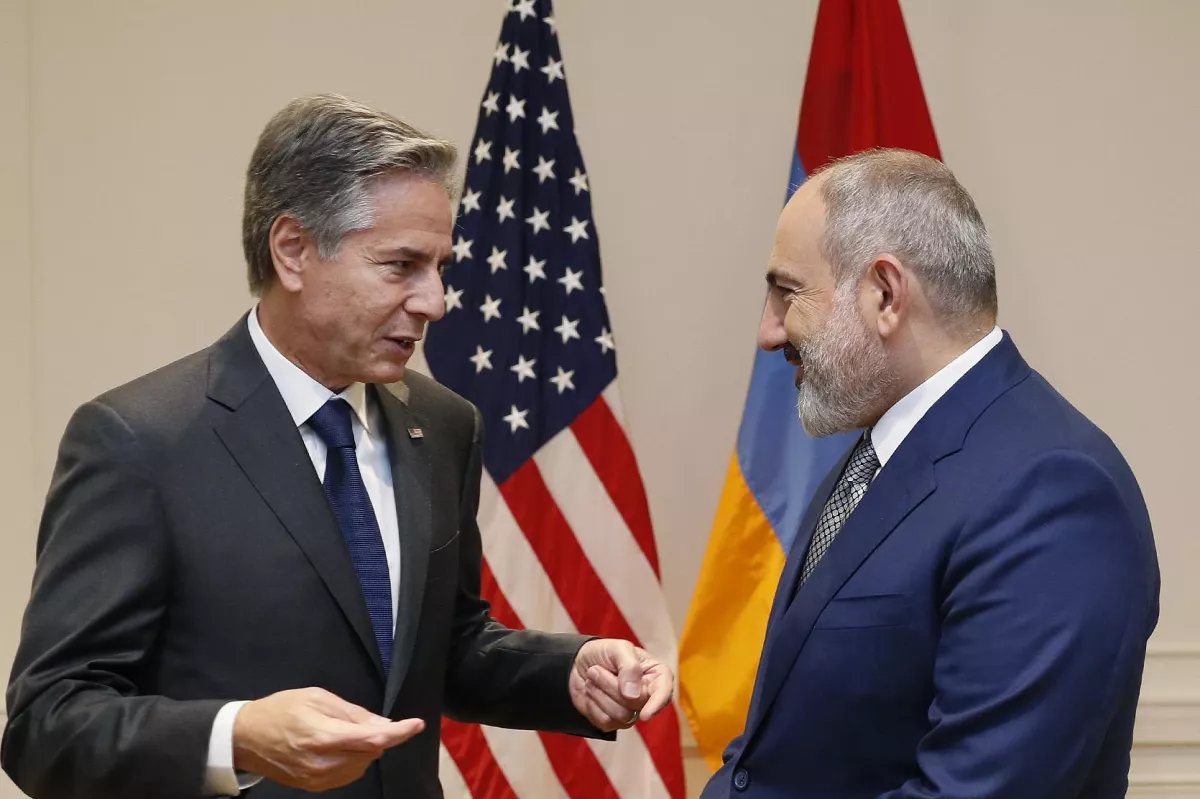Encouraging conflict under guise of peace talks Washington’s war games
After a brief hiatus, US diplomacy has resumed its overt focus on the Armenia-Azerbaijan conflict. On September 16, US Secretary of State Antony Blinken, in a phone call with Azerbaijani President Ilham Aliyev, reiterated Washington's commitment to working towards a lasting peace between Armenia and Azerbaijan.
To recall, during the previous phone call on June 21, the American side similarly expressed its determination to continue supporting the normalisation process and urged both parties to swiftly sign a peace agreement. Recently, the United States has repeatedly approached Baku and Yerevan regarding the conclusion of a peace agreement, while sidelining Azerbaijan's justified demands for amendments to the Armenian constitution. Indeed, Washington has never mentioned the need to revise Armenia's fundamental law, which still contains territorial claims against Azerbaijan and Türkiye.
Possibly, in pursuit of its own interests in the region, the US may have promised Armenia support for signing a peace agreement without any constitutional changes. Such an approach clearly conflicts with Baku's interests, leading President Aliyev to remind the American diplomat that Azerbaijan is the initiator of the peace treaty with Yerevan and to make it clear that the peace agreement could only be signed if Armenia renounces its territorial claims against Azerbaijan. The President also stressed the importance of abolishing the OSCE Minsk Group and all associated institutions. In other words, the Azerbaijani leader signalled to the American side that a peace agreement is only achievable if Armenia meets these two conditions set by Azerbaijan.
The Armenian side, meanwhile, is reluctant to meet Azerbaijan's demands, which may be due to several factors. Yerevan may be delaying compliance with Baku's demands in the hope that the US will exert pressure on Azerbaijan and accelerate the signing of the peace agreement. The United States, on the other hand, is keen for the Armenia-Azerbaijan peace deal to be signed with American involvement. Rather than persuading Yerevan to meet Azerbaijan's just demands, the United States is militarising Armenia and fuelling the prevailing revanchist sentiments there.

This policy from Washington clearly demonstrates that the US does not genuinely aim to achieve stability and security in the region. The realpolitik of Washington is radically at odds with the grandiose rhetoric and statements from the White House and the State Department. In this context, it is worth recalling a recent briefing by State Department spokesperson Matthew Miller. " Obviously we always look for opportunities to convene the foreign ministers of Armenia and Azerbaijan. We continue to support the efforts of both countries to reach a durable and dignified peace agreement," Miller stated, disingenuously noting "significant progress towards a peace agreement."
This optimism from the American diplomat is far from reflecting the realities on the ground. The facts are stubborn: Washington, both directly and through its allies, is heavily arming Armenia, competing with Macron's France in this endeavour. Not only is the US involved in the militarisation of Armenia, but it has also decided to deploy a military contingent in Zangezur. If the Biden administration genuinely sought peace in the South Caucasus, it would not be encouraging Armenia but rather pressuring it to reach a peace agreement with Azerbaijan. Washington has ample leverage to do so.
Instead of blindly following the directives of its new patrons, Armenia should consider that military provocations against Azerbaijan risk not only destabilising the region but also threatening the very existence of the Armenian statehood.








